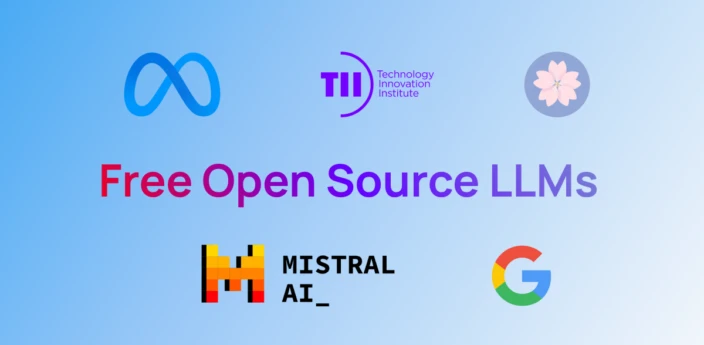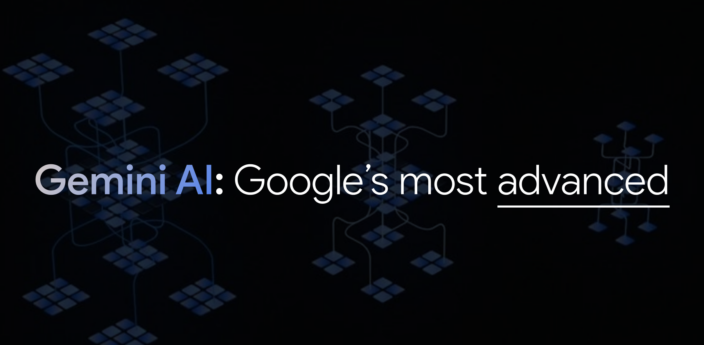
Falcon LLM: Redefining AI with Open-Source Innovation
Artificial Intelligence (AI) has swiftly evolved, becoming a strategic lever for businesses and an accelerator for innovation. At the heart of this revolution is Falcon LLM, a significant player in the AI industry. Falcon LLM, or Large Language Model, is a state-of-the-art technology that interprets and generates human language. Its cutting-edge capabilities allow it to understand context, generate completions, translations, summaries, and even write in a specified style.
What is Falcon LLM?
Falcon LLM represents a pivotal shift in the AI landscape, emerging as one of the most advanced open-source Large Language Models (LLMs). This model suite, including variations like Falcon 180B, 40B, 7.5B, and 1.3B, has been designed to address complex challenges and advance various applications.
The open-source nature of Falcon LLM, especially the 7B and 40B models, democratizes access to cutting-edge AI technology, allowing individuals and organizations to run these models on their own systems.
What is Falcon LLM Used For?
Falcon LLM’s architecture is optimized for inference, contributing to its standout performance against other leading models. It uses the REFINEDWEB dataset, encompassing a wide array of web-sourced data, and demonstrates exceptional abilities in tasks like reasoning and knowledge tests. The model’s training on 1 trillion tokens, using a sophisticated infrastructure of hundreds of GPUs, marks a significant achievement in AI development.
It benefits enterprises in numerous ways:
- They encourage collaboration and knowledge-sharing
- They offer flexibility and customization options
- They foster innovation and rapid development
The open-source nature of these models means that they are publicly accessible; anyone can inspect, modify, or distribute the source code as needed. This transparency promotes trust among users and can expedite problem-solving and technological advancement.
Enterprise AI models refer to AI technologies specifically designed for enterprise applications. These models assist businesses in automating tasks, making more informed decisions, optimizing operations, and enhancing customer experiences, among other benefits. The adoption of such models can be transformative for an organization – providing competitive advantages and driving business growth.
In the subsequent sections of this article, we will delve into the workings of Falcon LLM technology, its open-source nature, use cases in various industries, comparison with closed-source AI models along with its commercial usability and efficient resource utilization.
Understanding Falcon LLM’s Open Source Technology
Falcon LLM stands at the vanguard of AI technology. It’s a potent large language model (LLM) with an alluring promise to revolutionize the Artificial Intelligence industry. This bold promise is backed by its unique capabilities that are designed to help enterprises realize their full potential.
To comprehend what makes Falcon LLM special, one must understand the concept of LLMs. These are a type of AI model specifically designed for understanding and generating human languages. By processing vast amounts of text data, LLMs can write essays, answer queries, translate languages, and even compose poetry. With such capabilities, enterprises can deploy these models for a broad range of applications, from customer service to content generation.
However, the true prowess of Falcon LLM lies in its innovative collaborative efforts. NVIDIA and Microsoft are among the notable collaborators contributing to its development. NVIDIA’s advanced hardware accelerators and Microsoft’s extensive cloud infrastructure serve as formidable pillars supporting Falcon LLM’s sophisticated AI operations.
For instance, NVIDIA’s state-of-the-art graphics processing units (GPUs) enhance the computational power required for training these large language models. Pairing this with Microsoft’s Azure cloud platform provides a scalable solution that allows for seamless deployment and operation of Falcon LLM across various enterprise applications.
This symbiotic collaboration ensures Falcon LLM’s superior performance while upholding efficiency and scalability in enterprise applications. It paves the way for businesses to harness the power of AI without worrying about infrastructure limitations or resource constraints.
Embracing this technology opens doors to unprecedented opportunities for enterprises, from enhancing customer experience to automating routine tasks. The next section will delve into how open source plays a crucial role in defining Falcon LLM’s position in the AI landscape.
The Role of Open Source in Falcon LLM
The open-source approach encourages a collaborative environment where the global AI community can contribute to and refine the model. This collective effort leads to more rapid advancements and diverse applications, ensuring that Falcon LLM stays at the forefront of AI technology.
Open source is not merely a component but a key driver of the Falcon LLM technology. Open source brings to the table an array of benefits, including transparency, flexibility, and collaborative development, which contribute significantly to the advancement and enhancement of AI models.
Falcon LLM’s open-source approach embraces these benefits. It cultivates an environment that encourages knowledge-sharing and collective improvement. By providing access to its AI models’ code base, Falcon LLM allows developers worldwide to study, modify, and enhance its algorithms. This promotes a cycle of continuous innovation and improvement that directly benefits enterprises using these models.
The Advanced Technology Research Council and the Technology Innovation Institute have played crucial roles in shaping Falcon LLM’s open-source journey. Their involvement has not only fostered technological innovation but also curated a community of researchers and developers dedicated to pushing AI boundaries. This synergy has resulted in robust, powerful AI models capable of addressing diverse enterprise needs.
“Collaboration is the bedrock of open source. By involving organizations such as the Advanced Technology Research Council and Technology Innovation Institute, we are creating a platform for global minds to work together towards AI advancement.”
Open-source models like Falcon LLM play a crucial role in democratizing AI technology. By providing free access to state-of-the-art models, Falcon LLM empowers a diverse range of users, from individual researchers to large enterprises, to explore and innovate in AI without the high costs typically associated with proprietary models.
While the advantages of open-source AI models are considerable, they are not without challenges:
- Intellectual property protection becomes complex due to the public accessibility of code.
- Ensuring quality control can be difficult when numerous contributors are involved.
- Vulnerability to malicious alterations or misuse of technology can increase due to unrestricted access.
Despite these challenges, Falcon LLM remains committed to its open-source approach. It recognizes these hurdles as opportunities for growth and evolution rather than deterrents. By striking a balance between open collaboration and tight regulation, Falcon LLM continues to provide high-quality AI solutions while encouraging technological innovation.
Use Cases and Applications of Falcon LLM Open Source AI Models
Falcon LLM, as an open-source AI model, presents numerous applications across various industry sectors. These use cases not only demonstrate the potential of the technology but also provide a roadmap for its future development.
Diverse Use Cases of Falcon LLM
Falcon LLM’s versatility allows it to excel in various domains. Its applications range from generating creative content and automating repetitive tasks to more sophisticated uses like sentiment analysis and language translation. This broad applicability makes it a valuable tool for industries like customer service, software development, and content creation.
Different sectors have different needs, and Falcon LLM caters to a broad spectrum of these. Notably, it has found application in:
- Machine Translation: For businesses that operate in multilingual environments, Falcon LLM helps bridge the language gap by providing accurate translations.
- Text Generation: Content creators can leverage Falcon LLM for the automated generation of text, saving valuable time and resources.
- Semantic Search: The model enhances search capabilities by understanding the context and meaning behind search queries rather than just matching keywords.
- Sentiment Analysis: Businesses can utilize Falcon LLM to gauge customer sentiment from various online sources, helping them better understand their audience.
For businesses, Falcon LLM can streamline operations, enhance customer interactions, and foster innovation. Its ability to handle complex problem-solving and data analysis tasks can significantly boost efficiency and decision-making processes.
Comparing Open-Source vs Closed-Source AI Models
To make an informed choice between open-source and closed-source AI models, it’s crucial to understand their unique characteristics.
Open-source AI models, like Falcon LLM, are accessible to the public. They allow developers around the globe to contribute and improve upon the existing model. This type of model leverages collective knowledge and expertise, resulting in a robust and dynamic tool. By employing open-source AI models, enterprises benefit from constant improvements and updates. However, they also face challenges such as:
- Management Complexity: It can be difficult to manage contributions from numerous developers
- Security Risks: Open-source nature makes the model vulnerable to potential security threats.
On the other hand, closed-source AI models are proprietary products developed and maintained by specific organizations. Access to these models is often limited to the organization’s team members or customers who have purchased licenses. Advantages of closed-source models include:
- Controlled Quality: The organization has full control over development, which can lead to a more polished product.
- Support & Maintenance: Users usually get professional support and regular updates.
However, these systems can also present difficulties:
- Limited Customization: Without access to source code, customization options may be limited.
- Dependency on Providers: Businesses rely on the provider for updates and maintenance.
Performance and Accessibility
While Falcon LLM rivals the performance of closed-source models like GPT-4, its open-source nature provides unparalleled accessibility. This lack of restrictions encourages wider experimentation and development, fostering a more inclusive AI ecosystem.
Data Privacy and Customization
Open-source models offer greater data privacy, as they can be run on private servers without sending data back to a third-party provider. This feature is particularly appealing for organizations concerned about data security and looking for customizable AI solutions.
The choice between open-source and closed-source depends on an enterprise’s specific needs. Open source offers flexibility and continuous enhancement at the cost of potential security risks and management complexity. Conversely, closed-source may ensure quality control and professional support but restricts customization and induces provider dependency.
Commercial Usability and Efficient Resource Utilization
The Falcon LLM open-source model is not just a fascinating concept in AI research; it also holds significant commercial usability. The design of this model allows for seamless integration into various business operations. Businesses can leverage the Falcon LLM to automate tasks, analyze large data sets, and foster intelligent decision-making processes.
Notably, the adaptability of the Falcon LLM model is a key factor in its commercial appeal. It can be tweaked to suit the specific needs of a business, regardless of its industry or scale. This flexibility allows businesses to deploy AI solutions that perfectly align with their operational needs and strategic goals.
“The adaptability of the Falcon LLM model is a key factor in its commercial appeal.”
On the other hand, efficient resource utilization is an essential aspect of enterprise AI models. Enterprise AI solutions must be designed for efficiency to ensure they deliver value without straining resources. The Falcon LLM open-source model shines in this regard.
Falcon LLM’s collaboration with NVIDIA and Microsoft has resulted in a model that optimizes hardware utilization. This optimization translates into reduced operational costs for businesses, making the Falcon LLM model an economically viable option for enterprises.
Lowering Entry Barriers for Businesses
Falcon LLM’s open-source model reduces the entry barriers for businesses looking to integrate AI into their operations. The lack of licensing fees and the ability to run the model on in-house servers make it a cost-effective solution.
Resource Optimization
Despite its high memory requirements for the larger models, Falcon LLM offers efficient resource utilization. Its architecture, optimized for inference, ensures that businesses can achieve maximum output with minimal resource expenditure.
In essence, the Falcon LLM open-source model successfully marries commercial usability and efficient resource utilization. Its flexible nature ensures it can cater to diverse business needs while optimizing resources to deliver maximum value – a combination that makes it an attractive choice for businesses looking to embrace AI.
“The Falcon LLM open-source model successfully marries commercial usability and efficient resource utilization.”
As we delve deeper into the world of AI, it becomes apparent that models like the Falcon LLM are not just tools for advancement; they’re catalysts for transformation in the enterprise landscape. The next segment will shed light on how these transformations might shape up in the future.
The Future of Falcon LLM Open Source AI Models in Enterprise
The journey of this article commenced with the introduction to the Falcon LLM, a trailblazer in the AI industry. It is an open-source model that is gaining momentum in enterprise use due to its powerful capabilities. A deep dive into the Falcon LLM technology painted a picture of its collaboration with tech giants such as NVIDIA and Microsoft, thereby highlighting the large language model’s potential.
Open source plays a pivotal role in Falcon LLM’s development, bolstered by the involvement of the Advanced Technology Research Council and Technology Innovation Institute. It presents both opportunities and challenges yet proves to be a driving force for fostering innovation.
A broad spectrum of use cases was explored for Falcon LLM, emphasizing its versatility. This flexibility extends beyond academia and research, penetrating commercial sectors as an efficient solution for resource utilization in AI models.
A comparison between open-source and closed-source AI models added depth to the conversation, shedding light on the merits and drawbacks of each approach. Regardless, Falcon LLM’s commercial usability sets it apart from other AI models in terms of effective resource management.
Looking ahead, there are exciting possibilities for Falcon LLM in enterprise settings. As more businesses realize its potential and practical applications expand, its influence will continue to grow.
While predicting exact trajectories can be challenging, it is safe to say that new developments are on the horizon. As more businesses adopt AI models like Falcon LLM and contribute back to the open-source community, innovations will proliferate at an even faster pace:
Driving Innovation and Competition
Falcon LLM is poised to drive innovation and competition in the enterprise AI market. Its high performance and open-source model challenge the dominance of proprietary AI, suggesting a future where open-source solutions hold a significant market share.
Expanding Enterprise AI Capabilities
As Falcon LLM continues to evolve, it will likely play a crucial role in expanding the capabilities of enterprise AI. The model’s continual improvement by the global AI community will ensure that it remains at the cutting edge, offering businesses powerful tools to transform their operations.
Bridging the Open and Closed-Source Gap
Falcon LLM exemplifies the rapid advancement of open-source AI, closing the gap with closed-source models. This trend points to a future where businesses have a wider range of equally powerful AI tools to choose from, regardless of their source.
Falcon LLM has already started making waves in the enterprise sector. Its future is promising; it’s not just another AI model — it’s a game changer.



